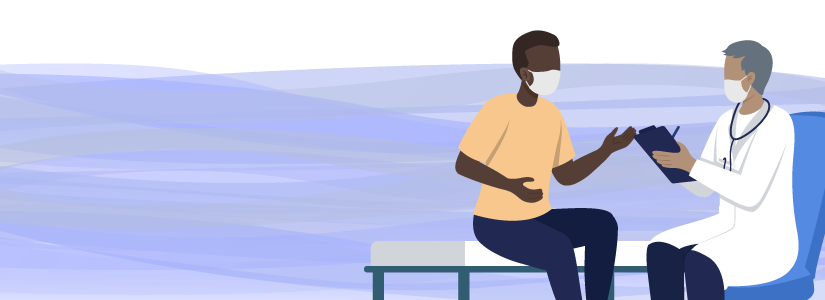Colon Cancer Screening

Colon Cancer Screening [PDF, 1 page, 430 KB]
Is colon cancer screening available through the World Trade Center Health Program?
The World Trade Center (WTC) Health Program provides screenings and treatment for health conditions, including colon cancer, related to the September 11th terrorist attacks. Colon cancer screening may be available as a part of the health monitoring exam assuming certain requirements are met.
How does the WTC Health Program decide to screen for colon cancer?
The WTC Health Program follows government-screening guidelines1 set by experts who make recommendations about cancer screening and care.
What colon cancer screening tests can I receive through the WTC Health Program?
The WTC Health Program offers three types of colon cancer screening. Initial testing might look for small amounts of blood in your stool. A second type of test allows doctors to look inside the rectum and lower colon, while a third type of test examines the entire length of the colon. Your doctor will suggest the best procedure for cancer screening based upon your individual circumstances.
When am I eligible for colon cancer screening?
Colon cancer screening is recommended to begin at the age of 45, and should continue through age 75.
What are the benefits of colon cancer screening?
Colon cancer screening looks for cancer before you feel symptoms from the disease. Screening allows for earlier treatment, which may slow or even stop the cancer from progressing.
What is the risk from colon cancer screening?
Some procedures used to examine the colon do present minimal risk, but for most people the benefits of screening outweigh the potential risk. Abnormal findings during a colonoscopy can lead to invasive diagnostic procedures, such as a biopsy. These diagnostic procedures include some potential risks such as infection, bleeding, or a tear in the colon. For some procedures you will receive medicine to help you relax. Talk to your doctor if you are concerned or have any questions about the procedures.
What happens if I receive a negative result?
Your doctor will explain what the negative result means in more detail. The Program will cover future screening as recommended by the government-screening guidelines.
What happens if I receive a positive result?
Your doctor will explain what the positive result may mean for future testing and possible treatment. The Program will cover additional screenings if you receive a positive result. The Program will also cover your treatment if the cancer is determined to be related to the September 11th terrorist attacks.
Can I still be screened through my personal physician who is not a part of the WTC Health Program?
You may choose to have colon cancer screening through your private physician. However, the WTC Health Program can only pay for care provided through the Program.
Learn More
Call 1-888-982-4748 or visit www.cdc.gov/wtc
- The WTC Health Program follows the U.S. Preventative Task Force (USPSTF) category A and B recommendations for colorectal cancer beginning at age 45 years and continuing until age 75 years. The WTC Health Program policy allows stool testing, sigmoidoscopy, colonoscopy, and CT colonography, as screening methods which are recommended by USPSTF. Available at https://www.uspreventiveservicestaskforce.org/uspstf/recommendation/colorectal-cancer-screening
